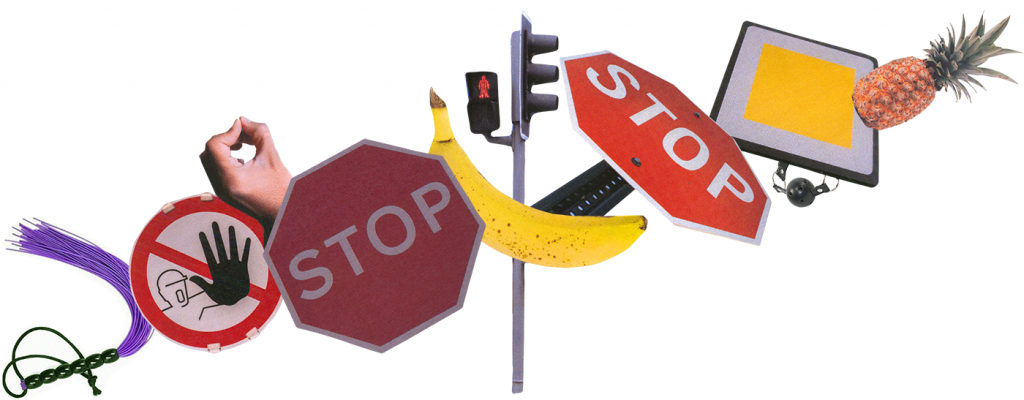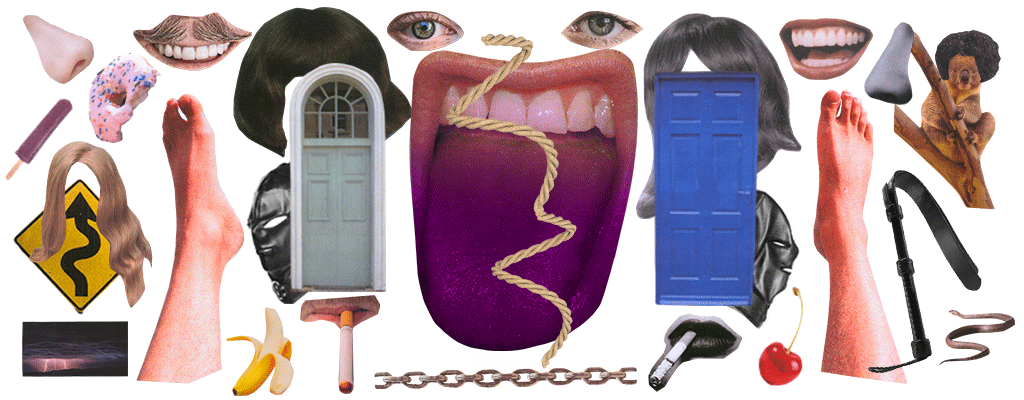When Do You Use Safe Words?
Get the notion that safewords should only be used for dire emergencies out of your head. Remember, safewords are a customizable communication tool. They provide an opportunity to interrupt the action to care for yourself or a partner. Think of safewording as an elaborate way to call “time-out.”
Just like you might safeword due to a medical emergency or unpleasant mental state, you can also safeword because you have to go to the bathroom. Or maybe you’re thirsty but can’t get a drink because your hands are tied. Perhaps you just need a minute to catch your breath. You’re allowed to safeword even when you can’t verbalize exactly what you’re feeling but just know you need to stop.
Sometimes our ego gets the best of us making us think we’re “wimps” if we safeword. Additionally, sometimes those with ill intent cite made-up “BDSM safeword rules” to manipulate others and legitimize non-consensual acts. Remember,
- Anyone can safeword at any time for any reason – even if that reason seems silly or inconsequential.
- You’re not required to explain why or to justify your use of a safeword.
- You’re not a failure if you use a safeword.
- Safe words are your way of maintaining and revoking consent. They should never be taken away as punishment nor should your right to use them have to be “earned.”
You might be thinking, “Why would I end an enjoyable scene for something silly like ‘my nose itches?’” No need to worry, when you call a safeword it doesn’t necessarily mean that play stops for good.
What Happens After You Call Your Safe Word?
What happens after you call a safeword is entirely up to you and your play partners. How does this work? During pre-scene kink negotiation, you and your partner(s) agree on your safeword, how it should be used, and what should happen after it’s called.
Most people use safewords like a “time-out.” Think about how time-out worked on the playground as a kid – you immediately stopped the action and checked in with each other. Sometimes someone just needed to stop to tie their shoe before resuming play. Sometimes the time-out caller wanted to keep playing but modify the rules because the game felt too intense. Other times that person wasn’t enjoying any part of it and wanted to stop playing.
Safe words in kink work similarly. You stop, break character if you were in a role play, and check-in. Then you decide if you need to rest, recalibrate, or stop altogether.
If the scene is over you can transition into the post-scene protocol you decided before play. This is usually aftercare which may involve changing into comfortable clothes, eating a snack, cuddling together under a blanket, having sex, or whatever come-down activity you agree on (aftercare is completely customizable too).
In your pre-scene negotiation, you should also establish a protocol for extreme circumstances. Pre-arrange grounding activities that your partner can help you transition to if you’re triggered during a BDSM scene. Plan for worst-case scenarios too like medical emergencies. Let your partner know what nearby hospitals are in your insurance network or how to respond if a known health issue pops up (i.e. if you’re diabetic, where your insulin is or what sugary snack they can give you for low blood sugar).
Why establish protocols for hypothetical worst-case scenarios? Because if and when those situations pop up you may not be able to think clearly or make informed decisions about next steps.







